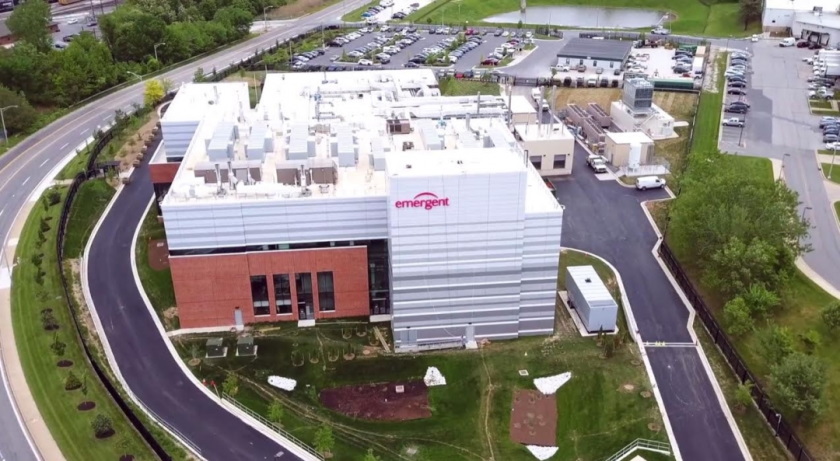J&J must ditch 60m COVID jabs made at US plant, but 10m are okay, says FDA

The failings at a Baltimore, US factory making Johnson & Johnson's COVID-19 vaccine mean that millions of doses of the shot will have to be jettisoned, according to an FDA update.
The problems at the plant run by contract manufacturer Emergent BioSolutions first emerged a few weeks ago, after an FDA inspection uncovered a string of violations including that the building was “not maintained in a clean and sanitary condition."
While the main issue was the discovery of AstraZeneca vaccine material in J&J batches, the inspectors also found peeling paint and damaged floors and walls that would prevent adequate cleaning, and waste materials that weren't properly decontaminated before being shipped to other areas of the facility.
The plant remains shuttered, so all the 21 million doses of J&J's one-shot vaccine have been supplied from its facility in the Netherlands.
The good news? Two batches of the one-shot jab – equivalent to around 10 million doses – are salvageable and can be released for use in vaccination campaigns. However, another five batches that include around 60 million doses, were rejected after a quality review.
In a statement on its latest update on the matter, the FDA said that it was good news that a "critically needed" supply of the vaccine developed by J&J's Janssen pharma subsidiary will now become available either for use in the US or export to other countries.
"While the FDA is not yet ready to include the Emergent BioSolutions plant in the Janssen [emergency use authorisation] as an authorised manufacturing facility, the agency continues to work through issues there with Janssen and Emergent BioSolutions management," said the regulator in a statement.
It has also extended the expiration date for refrigerated supplies of the Janssen vaccine, saying that it can be kept for 4.5 rather than three months if kept at 2-8 degrees Celsius.
That's more good news for both the US vaccination drive and J&J, as some states have been struggling to use up surplus stocks with other vaccines widely available and the reputation of the shot damaged by the manufacturing issues and a link to blood clotting disorders.
J&J's chief global supply chain officer Kathy Wengel said the authorisation of two batches from the roubles Bayview facility "represents progress in our continued efforts to make a difference in this pandemic on a global scale."
She added that J&J "continues to substantially expand its global vaccine manufacturing network as we work with regulatory and health authorities to supply our COVID-19 vaccine worldwide."
The problems at the Baltimore plant have wreaked havoc with J&J's efforts to fulfil orders for the shot, and it emerged at the weekend that the German government has asked the company to deliver 6.5 million doses by the end of July to offset a shortfall.
EMA official says AZ COVID jab should not be used in over-60s
Meanwhile, a senior official at the European Medicines Agency (EMA) has said that countries should avoid giving the AstraZeneca COVID-19 vaccine – which has also been linked to clotting disorders – in the over-60 age group as well as younger patients if other options are available.
Marco Cavaleri, who heads up the biological health threats and vaccine strategy at the agency, told Italian newspaper La Stampa over the weekend that the increasing availability of alternative vaccines based on mRNA technology from Pfizer/BioNTech and Moderna means that these should be used whenever possible.
Last week, Italy said it would restrict the use of the AZ vaccine to people aged over 60 after a teenager who received the shot died from a rare clotting side effect.
The EMA's official position is that the benefits outweigh the risks of the AZ vaccine in all age groups over 18, although it has just warned that people who have previously had a rare condition known as capillary leak syndrome should not receive the jab.












